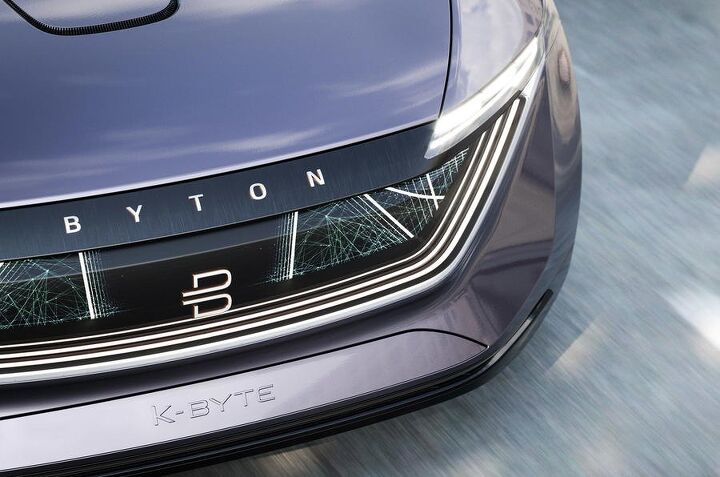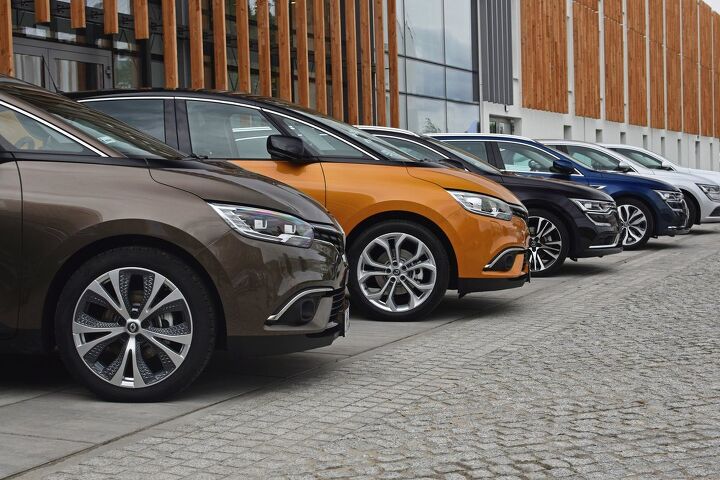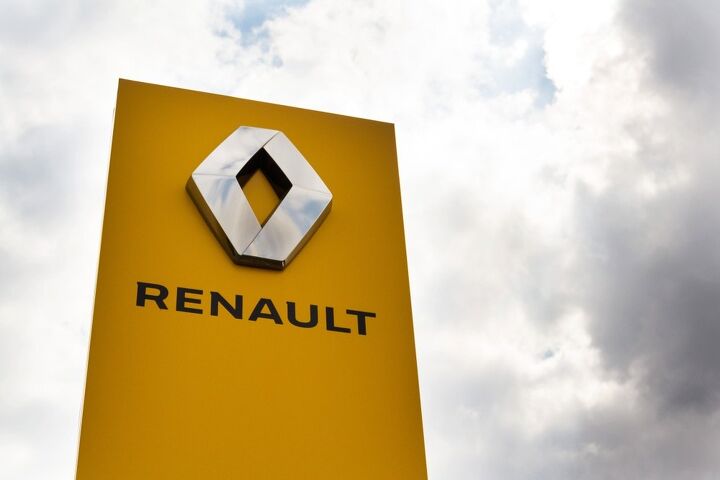#restructuring
PSA Head Says Electric Vehicles Too Dang Expensive to Build
Carlos Tavares, CEO of Groupe PSA, believes the secret to mainstreaming electric vehicles may have something to do with the industry being able to sell them at a profit. The French automaker’s boss has expressed concerns about a segment that’s almost entirely propped up by taxpayers — sounds likes someone might have taken a business course before running a multinational automaker!
It’s not that EVs are bad; they’re just too novel to be a bargain. Tavares believes the high development costs associated with newer technologies have effectively made electric cars money-losers without financial assistance from the government. He thinks their ultimate success (or failure) hinges upon finding a way to make them profitable without being perpetually subsidized by the government while reducing the amount of raw materials required for battery manufacture. As a bonus, he hinted that automakers might have juicer R&D budgets if they prioritized spending — hopefully accelerating the process of making EVs a little easier on everyone’s bank account.
“Affordability will be the challenge for the next five years in terms of costs,” Tavares told the Financial Times this week. “Those breakthroughs need to come from real estate, distribution costs, sourcing all the components of cost structure will have to be combined to bring this affordability.”
Nissan Predicts $4.5 Billion Operating Loss
Based on Mitsubishi’s bleak assessment of its own future, you might have thought it would be the automaker winning this week’s award for saddest economic forecast. But Nissan refused to be outdone. Having already warned the world that 2020 would prove harrowing even before anyone heard the term “COVID-19,” the brand now predicts an operating loss of 470 billion yen ($4.5 billion USD).
Nissan likewise estimates total revenue declining by one-fifth through year’s end to 7.8 trillion yen ($74.1 billion) as its worldwide vehicle sales continue a longstanding retreat.
While it’s difficult to know what to peg these losses on, there are a few obvious suspects. Both automakers sacrificed their identities as automakers in order to spend years trying to expand globally, with a particular focus on developing countries and bland models assumed to have mainstream appeal. Nissan even re-launched the Datsun name as an affordable alternative in places like India, but it wasn’t the sales success the company envisioned.
Nissan Predicts Incredibly Lean Year, Plans Accordingly
Nissan’s all-important turnaround has been complicated immensely by the coronavirus pandemic. Supply chains fell into in shambles as countless factories temporarily closed as a countermeasure, harming profits as demand came to a screeching halt. Now there’s a looming recession that many economists fear may surpass the Great Depression — though this was a concern years before the COVID response hit the accelerator, thanks to growing debt and the way finance has been allowed to operate for decades.
Seeing the writing on the wall, many automakers have tamped down expectations for 2020. Being in the peculiar position of restructuring before the pandemic hit — which isn’t all that unique within the industry, truth be told — Nissan is reportedly plotting a 30 percent year-on-year cut in global production.
Nissan's CEO Explains Recovery Plan to Angry Investors
Nissan CEO Makoto Uchida attempted to smooth things over with investors last week by going over his company’s new recovery plan in great detail. As you undoubtedly know by now, the automaker found itself in a less than blissful situation following an ugly internal power struggle that highlighted corporate corruption and a business strategy that seemed like a liability without ideal economic circumstances and the man who penned it running the show.
With its share price already suppressed by worsening sales performance and assumed “management issues” with alliance partner Renault, the internal scandal kicked off by the arrest of former chairman Carlos Ghosn November 2018 is what really sent Nissan’s stock into a tailspin. Shares have lost more than half their value since the incident.
This placed Uchida in the undesirable position of having to explain what went wrong and how to fix it. In the past, Uchida said he’d happily be fired if he can’t turn things around, though that’s usually what happens to CEOs who can’t deliver (or need to be scapegoated and sacrificed on the alter of commerce by their board). Based on comments made at the company’s most recent shareholder meeting, Uchida seems to understand how things work.
“I said, ‘If Nissan’s performance does not improve, please fire me. Please dismiss me,’ ” he reminded the crowd on June 29th. “That’s what I said. And this policy remains unchanged.”
Plug Pulled: Byton Suspends Production, Plans Reorganization
Chinese electric car startup Byton will reportedly idle production next month as it attempts to reorganize itself. While the coronavirus emerged as a villain in this play, the issues confronting Byton actually seem pretty dire. The company isn’t just idling factories to address a health crisis, it’s shutting things down for six months while it engages in more fundraising and tries to pay what’s owed to employees.
That’ll be tough with no normal income. Byton has already furloughed a large portion of its staff in California and plans to cease all production in Nanjing. While we knew the PRC’s approach to electrification would ultimately result in countless EV startups going under, we didn’t expect Byton to be among them. Slick products, good marketing, and interesting designs made it seem like it could go the distance — now it seems wholly preoccupied with survival.
GM CEO Says Pandemic Helped Cut Costs; Decontenting Incoming
On Tuesday, General Motors CEO Mary Barra suggested her company would exit the other side of the coronavirus pandemic running much leaner than when it went in. While this will probably be the case for other automakers, as many (including General Motors) went into 2020 with restructuring efforts planned or already underway, GM is letting everyone know it’s doing cuts extra right.
This likely has to do with the automaker not wanting to look as though it’s in for a repeat of 2008, now that the global economy’s once again careening toward troubled times — but we’re just guessing. It also seems as though the extreme lack of industrial progress created by months of factory shutdowns has forced executives to fill the void with a lot of hot air. Fortunately, Barra’s message wasn’t totally devoid of useful information.
Renault Scores Loan From Guess Who?
Renault — struggling, like all other automakers, from the body blow called COVID-19 — has secured a financial lifeline from an unsurprising source: the French government.
France, which holds a 15 percent stake in the automaker, signed off on a $5.6 billion rainy day fund for the company, guaranteeing 90 percent of the borrowed sum. That takes a fair bit off the heat off.
Nissan and Renault Divvy Up Production Responsibilities
Nissan and Renault opted against a full merger on Wednesday, but neither side seemed to feel now was the time to disband the alliance and see how they might fare as a solo act. Every member of the Renault–Nissan–Mitsubishi Alliance took time to address financial concerns last year, encouraging further product integration as a cost-mitigation strategy. Despite Nissan shareholders and staff clearly losing interest in the French-led confederation, the brand seems to understand that leaning upon its allies might be the only way to get through a period of increasing economic uncertainty.
Mitsubishi slashed its 2020 financial forecasts ahead of the coronavirus pandemic by over $500 million while the other two issued numerous profit warnings in the latter half of 2019. Now the world is exiting lockdowns and assessing the economic damage they caused. Obviously, this is not the time to be burning bridges, even if some alliance partners aren’t enthralled with what’s probably waiting on the other side.
McLaren Poised to Cut 1,200 Jobs
McLaren says circumstances have encouraged it to get fairly aggressive in its restructuring efforts. Coronavirus lockdowns forced the company, like so many others, to postpone production and forego sales.
While an undesirable scenario for any manufacturer, McLaren Group already faced additional headwinds by being a relatively small manufacturer dependent on low-volume specialty products with astronomical price tags and having its racing program kneecapped the Fédération Internationale de l’Automobile (FIA).
Uber Death Watch: Ride-hailing Firm Cuts 3,000 Additional Jobs
Uber Technologies eliminated an additional 3,000 jobs on Monday, closing offices around the world as certain regions revealed less growth than the outfit had hoped for. We covered the ride-hailing firm’s financial situation last week, as reports circulated that it wanted to drop a few billion to acquire Grubhub and enhance its own food-delivery service in the wake of the coronavirus pandemic.
At the time, the firm had already cut 3,700 jobs pertaining to customer support and human resources. Even in the absence of people shunning shared transportation and local governments forcing citizens to stay indoors, Uber’s preexisting inability to turn a profit would probably have forced the company to restructure eventually. The pandemic pinned the accelerator to the floor mat, however, likely forcing additional cuts by the company’s own admission. Considering Uber has already axed about a quarter of its global workforce, it’s probably time to place it on death watch.
Hertz, Still Hurting, Cuts a Deal With Creditors
Lenders are cutting Hertz a break by affording the company an extended grace period, giving it a chance to cope with its debt. Last we checked on the rental agency, things weren’t going well. With governments cracking down on movement amid the coronavirus pandemic, no one is going anywhere — and the Hertz’s bottom line showcases exactly how bad this has been for business. Hertz had to bring in economic advisors to help the business manage its swiftly mounting debt load as it discussed how to avoid bankruptcy.
Similarly hit by the pandemic, airlines got a multi-billion-dollar bailout. Agencies like Hertz, Avis, and Enterprise, however, have had to seek their aid elsewhere, all the while hoping the U.S. Treasury Department answers their plea. Thus far, it’s been crickets.
Car renters are confronting a harrowing reality. They need to refresh their gigantic fleets in a period where no one can turn a profit, there’s little promise of a swift recovery, and used car values are cratering. Hertz started laying off workers in March as customers evaporated. By the end of April, it also announced it was defaulting on lease payments related to its fleet. With creditors rarely unclear about when they want their money, things were looking grim.
Rental Agencies in Dutch: Hertz Looks Into Restructuring
Hertz Global Holdings is reportedly bringing in economic advisors to help the business manage its mounting debt. Unsurprisingly, everyone in the world simultaneously canceling their vacation plans wasn’t great for business. Your author has had to cancel four trips this year, three of which would have included going from an airport to a rental agency. With others forced to do the same as the events and places they planned on enjoying closed up shop, the prognosis is not been good for the borrowed-automobile sector.
When we last checked in, rental agencies had slashed rates to an almost unimaginable degree. Realizing that cheap rentals actually earn you less money when you have a surplus of vehicles nobody wants, those prices have begun creeping back towards normal. But financial problems have not abated. Still, we can put a positive spin on this since you’re probably tired of hearing bad news. Instead of this signaling disaster for rental agencies, think of Hertz bringing in restructuring experts as a sign that it’s being proactive in coping with a truly undesirable situation.
Feel better? Alright, let’s bring you back to reality.
Nissan Temporarily Shutters Global Headquarters, Japanese Factories
Nissan said Tuesday that it plans to temporarily shut down its global headquarters and several factories in Japan to help curtail the spread of the novel coronavirus. While Japanese automakers are legally allowed to operate within the country (with conditions), most have instituted some amount of health countermeasures independently. The nation has also formed a joint council for automakers and component suppliers to work with the government in maintaining supply chains while avoiding future contagion risks.
Despite the level of precautions taken, the country’s automakers are still estimated to lose at least $1.6 billion as the pandemic suppresses demand around the world. Nissan, which issued profit warnings in 2019, went into 2020 expecting to eliminate thousands of positions so it could begin amassing $4.4 billion in savings by 2023. Marketing budgets and product lineups would also need to be rejiggered dramatically to assure profitability moving forward. With the coronavirus further complicating the company’s strategy, May’s idling could be about more than just containing the coronavirus.
French Government Warns Renault Against Job Cuts, Factory Closures
Last week, Renault reported its first significant loss in a decade (€141 million) and a 3.3-percent decline in annual sales for 2019. It now expects a flat 2020 and claims it needs to commit itself to a €2 billion restructuring program over the next three years. Alliance partner Nissan also anticipates a weak year, and is doubling down on its own restructuring efforts by showcasing an eagerness to do whatever it takes to restore profitability.
However, the French government wants Renault to slow down and think about things before it starts shuttering local factories. Owner of a 15-percent stake in the automaker, it doesn’t wish to see its investment doing anything embarrassing. As such, French Finance Minister Bruno Le Maire warned the company to be exceedingly careful with how it handles business in France, urging it to avoid any measures that might negatively impact domestic employment rates.
Nissan CEO Prepares to Swing the Axe Even Harder; North America in the Line of Fire
Dismally poor performance in a key market has left Nissan’s freshly minted CEO, Makoto Uchida, with no other option than to cut deeper.
Already, the struggling automaker’s North American arm has faced a workforce furlough, severe restrictions on travel, pared-down build configurations on new models, and a host of other cost-cutting efforts, but the present situation calls for more.
Replying to angry shareholders in Japan, Uchida promised to be merciless.





























Recent Comments